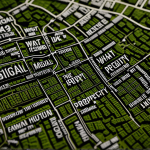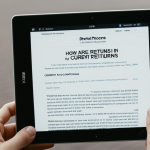Pet Ownership and Daily Structure in the UK
In the UK, establishing a pet care routine is essential for balancing both the well-being of pets and the daily lives of their owners. Scheduled feeding times, regular walks, and grooming sessions form the backbone of a daily schedule with pets. For example, many dog owners allocate specific morning and evening slots for walks, which directly influences their time management throughout the day. This structured approach ensures pets receive consistent care while owners maintain productivity.
Integrating pet responsibilities into work and family life requires flexibility but also commitment. In many UK households, pets are woven into everyday activities—whether taking short breaks to feed a cat or coordinating dog-walking with school runs. This integration exemplifies the structure of pet ownership as a lifestyle rather than a task. Proper planning accommodates both professional obligations and time spent bonding with pets, fostering a healthy home environment.
In the same genre : How Does Pet Ownership Impact Mental Health in the UK?
Different types of pets bring varied care demands. Dogs often need multiple walks and active play, while cats require less hands-on attention but benefit from routine feeding and interaction. Small animals like rabbits or rodents have unique schedules that revolve around cage cleaning and feeding. Adjusting routines to suit these needs is part of the responsible pet care routine UK owners adopt. This attention to detail ensures pets’ physical and emotional needs are consistently met within the constraints of busy UK lifestyles.
Physical Health and Exercise Benefits
Incorporating exercising with pets UK into daily life greatly enhances both pet and owner well-being. For dogs, daily walks are crucial components of the active lifestyle with pets, often structured into the daily schedule with pets that UK owners follow. These walks not only fulfill dogs’ exercise needs but also promote personal fitness through regular outdoor activity. Other pets, such as rabbits or small mammals, benefit from supervised playtime sessions, helping maintain their physical health while fitting into the pet care routine UK.
Topic to read : What Are Common Challenges Faced by Pet Owners in the UK?
The health benefits of pet ownership extend beyond physical fitness. Regular activity with pets encourages improved cardiovascular health, stress reduction, and greater exposure to fresh air and nature. Pet owners often find themselves more motivated to remain active due to the responsibility they feel for their pets’ exercise needs. Scheduled walks or playtimes provide structure to their day, contributing to overall wellness.
In the UK, numerous local parks and pet-friendly spaces facilitate safe exercise environments. These areas encourage social interactions and ensure compliance with exercise regulations, such as leash laws and designated dog zones. Using these spaces supports the structure of pet ownership by integrating outdoor leisure with exercise obligations. Thus, exercising pets in the UK fosters a balanced lifestyle and reinforces the symbiotic health benefits for both humans and animals.
Pet Ownership and Daily Structure in the UK
Balancing a pet care routine UK within a busy lifestyle requires deliberate planning. Scheduled feeding, regular walks, and grooming sessions create a daily schedule with pets that simplifies time management. For instance, allocating fixed times for dog walks or feeding cats helps owners build consistency, which benefits both pet and owner.
Integrating pets into work and family life demands flexibility but also structure. Many UK households blend pet care with everyday activities, such as coordinating dog walks around school runs or work breaks. This adaptability is part of the broader structure of pet ownership, emphasizing pets as integral members of the family rather than additional chores.
Different pets necessitate tailored routines. Dogs often require multiple exercise sessions, influencing the daily timetable significantly. Cats, while less demanding, still thrive with consistent meal times and interaction. Small animals need specialized care like cage cleaning and feeding on fixed schedules. Adjusting to these varying needs is fundamental for maintaining a responsible pet care routine UK and sustaining harmony within the household.
Pet Ownership and Daily Structure in the UK
Managing a pet care routine UK requires clear scheduling to fit meals, exercise, and grooming into a coherent daily schedule with pets. Scheduled feeding times give pets stability, reducing mealtime anxieties and promoting healthy digestion. Similarly, regular walks punctuate the day for dogs, forming key anchors in the structure of pet ownership. These routines guide owners’ time management, ensuring pets’ needs are met without disrupting work or family commitments.
Integrating pet responsibilities alongside professional and familial duties demands deliberate planning. Many owners blend pet care seamlessly into daily life by aligning walks with school runs or work breaks. This integrated approach reflects the modern structure of pet ownership in the UK, where pets are considered part of the household’s rhythm rather than added burdens. Flexibility within this routine is vital, permitting adjustments for unforeseen obligations while maintaining consistent care.
Different pets require distinct routine adaptations. Dogs’ multiple daily walks heavily influence owners’ schedules, while cats require less frequent but consistent feeding and interaction periods. Small pets such as rabbits need dedicated times for cage maintenance and supervised play, fitting into the broader pet care routine UK. Tailoring the daily framework to each pet’s unique requirements ensures well-being and fosters a harmonious household dynamic.
Pet Ownership and Daily Structure in the UK
Balancing a pet care routine UK significantly shapes the daily schedule with pets, influencing time management and household dynamics. Scheduled feeding times act as daily anchors, offering pets stability while helping owners organize their day effectively. Similarly, regular walks punctuate routines, especially for dog owners, who often arrange these around work commitments or family activities to uphold the structure of pet ownership. This planning reduces stress by providing predictable moments dedicated to pet care within busy days.
Integrating pet responsibilities into work and family life requires careful coordination. For example, many UK pet owners align dog walks with school runs or breaks during the workday, enhancing efficiency without compromising pet welfare. This integration supports a sustainable pet care routine UK, merging pet needs seamlessly with household priorities. Flexibility is a core aspect, allowing adjustments for unforeseen events while maintaining consistent care, which reflects the adaptive nature of the structure of pet ownership.
Adapting routines to meet diverse pet needs is essential. Dogs demand multiple daily walks and engaging activities, heavily influencing owners’ schedules. Cats benefit from consistent feeding and interactive moments, requiring less intensive but still regular attention. Small pets like rabbits and rodents necessitate dedicated care times for feeding, cage cleaning, and supervised exercise, forming part of the broader daily schedule with pets. Tailoring these routines ensures every pet’s physical and emotional needs are met while maintaining household balance.










